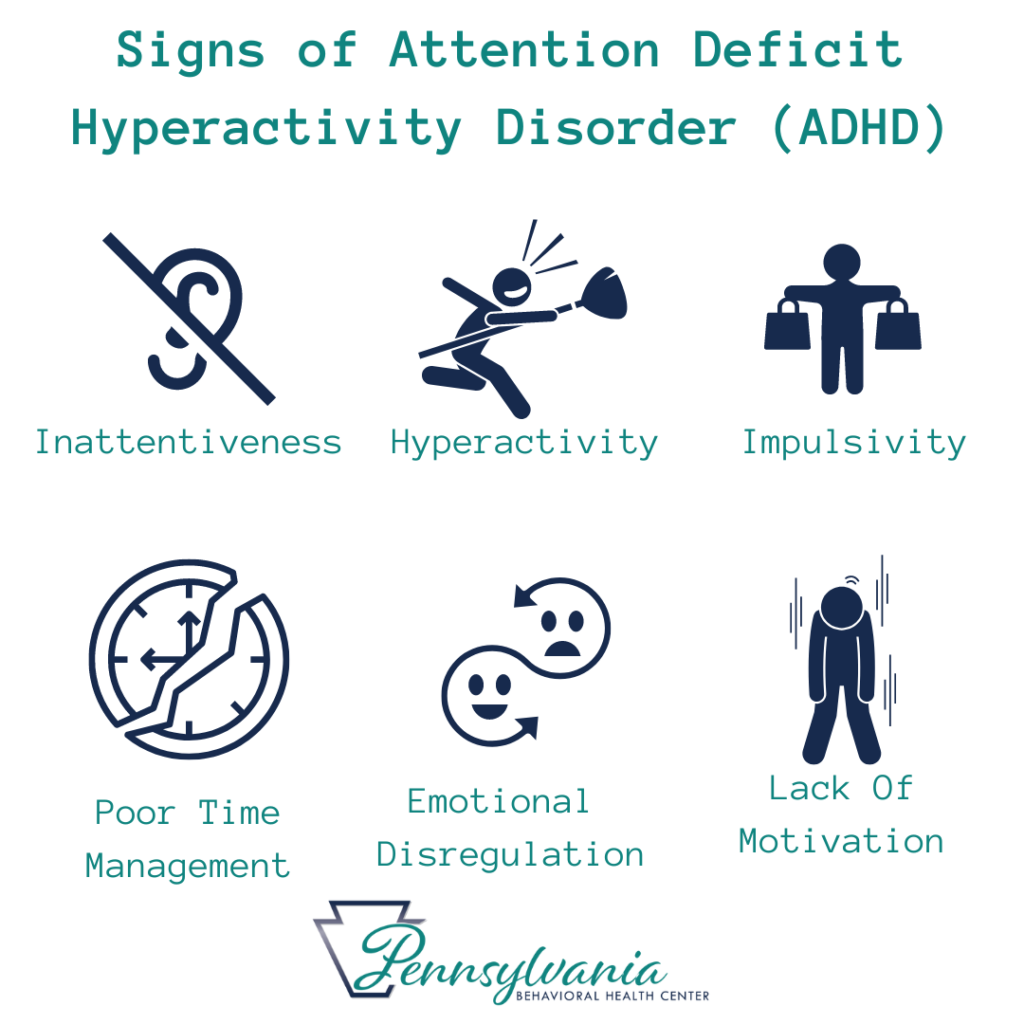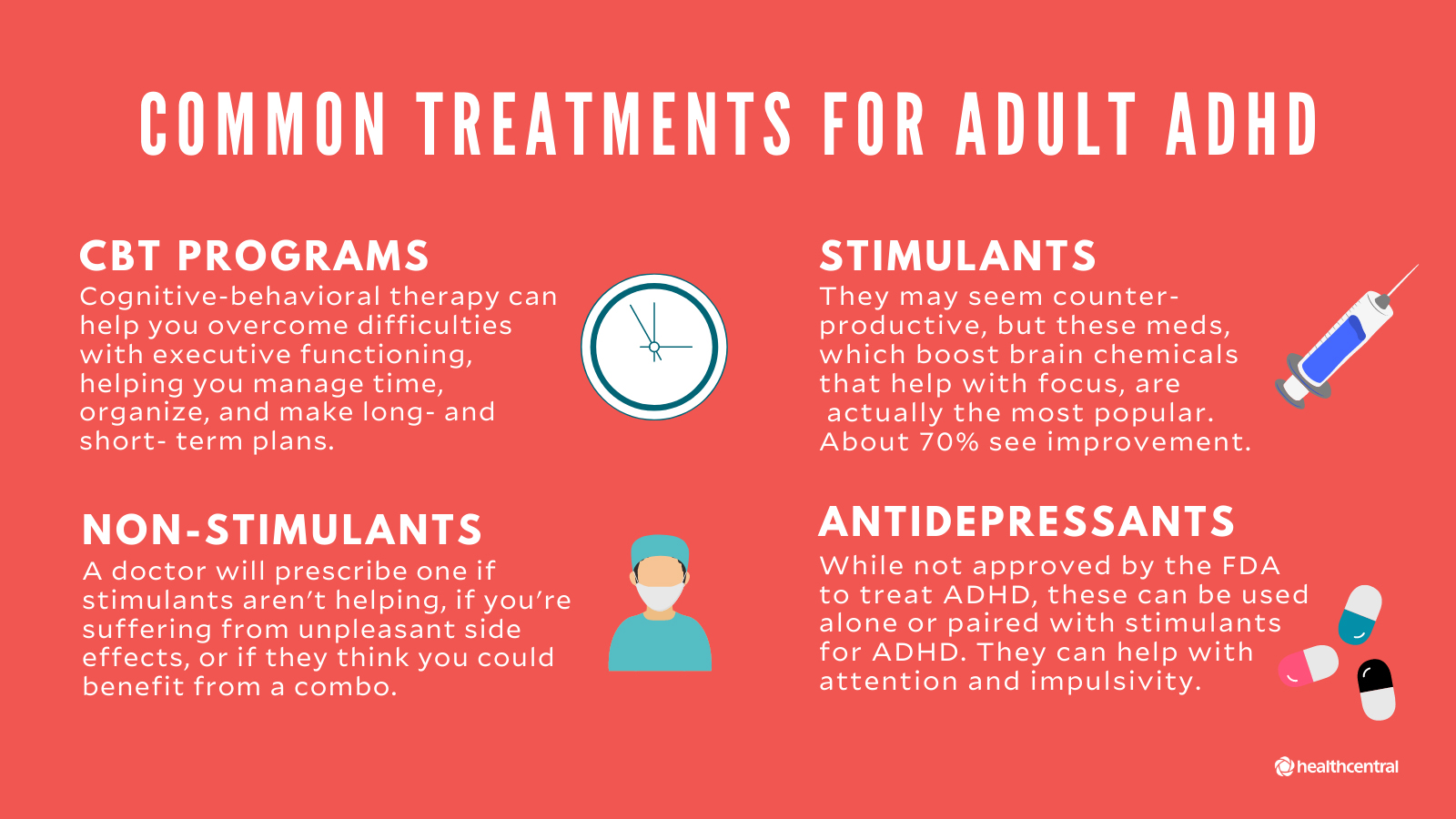Same Day Mental Health Services for Fast Access to Expert Care
Same Day Mental Health Services for Fast Access to Expert Care
Blog Article
Discovering Efficient ADHD Treatment Alternatives for All Ages
The complexities of Focus Shortage Hyperactivity Condition (ADHD) present unique challenges throughout different age teams, necessitating a thorough expedition of efficient treatment alternatives. A mix of behavioral therapies, pharmacological interventions, and way of life modifications has revealed pledge in attending to the diverse needs of individuals with ADHD.
Understanding ADHD and Its Impact
Attention-Deficit/Hyperactivity Disorder (ADHD) is a neurodevelopmental condition defined by persistent patterns of negligence, attention deficit disorder, and impulsivity that can significantly impact numerous aspects of an individual's life. It typically shows up in childhood years, although symptoms can linger into the adult years. The core signs and symptoms of ADHD can interrupt instructional efficiency, hinder social communications, and complicate work ventures.
People with ADHD commonly deal with preserving concentrate on tasks, organizing tasks, and following via on guidelines, which can bring about academic underachievement (Depression Treatment). In social contexts, impulsivity may cause troubles in forming and sustaining connections, as individuals may interrupt conversations or make rash decisions without thinking about repercussions
The irregularity in symptom presentation suggests that ADHD can impact individuals in a different way, necessitating a customized strategy to monitoring. Comprehensive understanding of ADHD's nature and effects lays the groundwork for discovering appropriate therapy alternatives customized to each person's needs.
Behavioral Therapies for ADHD
Many behavior modifications have been established to properly address the obstacles linked with ADHD, focusing on customizing particular actions and cultivating important abilities. Among the most acknowledged techniques are cognitive-behavioral therapy (CBT), moms and dad training, and social skills training.
CBT aids individuals determine and change unfavorable thought patterns and behaviors, advertising an extra favorable overview and enhanced self-regulation. This treatment commonly consists of useful approaches for managing impulsivity and boosting organization. Moms and dad training programs empower caregivers by furnishing them with strategies to reinforce favorable actions and established consistent limits, which can be especially useful for kids with ADHD.
Social skills training is an additional crucial part, teaching people with ADHD just how to engage efficiently with peers - Depression Treatment. This strategy usually entails role-playing and responses to boost interaction, cooperation, and conflict resolution skills
Including these behavioral therapies into a comprehensive treatment strategy can considerably boost operating and quality of life for people with ADHD. Ultimately, the efficiency of these treatments depends upon tailored approaches that consider the special needs of each person, therefore cultivating resilience and versatility in every day life.
Medication Options Available
For numerous people with ADHD, medicine can play a considerable duty in taking care of symptoms and enhancing general performance. Both key categories of medications suggested for ADHD are stimulants and non-stimulants.
Energizers, such as methylphenidate and amphetamine-based medications, are one of the most commonly utilized treatments. These medicines function by raising the degrees of natural chemicals, especially dopamine and norepinephrine, in the mind, which assists boost interest and minimize impulsivity and attention deficit disorder. They usually generate fast results, making them signs of severe depression a preferred option for many individuals.

It is important for healthcare service providers to carry out a detailed analysis to identify one of the most ideal drug based upon individual requirements, clinical history, and potential negative effects. Regular follow-up and tracking are also critical to guarantee the effectiveness of the chosen treatment and to make any necessary modifications.
Lifestyle Adjustments to Consider
Taking care of ADHD successfully expands beyond drug, as lifestyle changes can dramatically boost total health and symptom control. Including organized regimens is vital; regular routines help people with ADHD handle their time properly and minimize feelings of bewilder.
Normal exercise is another vital part. Workout not only aids to enhance focus but likewise improves mood and lowers tension degrees. Tasks such as yoga or team sports can be particularly advantageous, promoting both fitness and social communication.
Nourishment also plays a critical function. Depression Treatment. A balanced diet plan rich in omega-3 fatty acids, entire grains, and lean proteins can add to improved focus and cognitive feature. Restricting sugar and processed foods is recommended, as these can intensify hyperactivity and impulsivity
Rest hygiene is important for taking care of ADHD symptoms. Establishing a regular rest routine and developing a restful atmosphere can boost rest high quality, leading to far better focus and emotional guideline.
Alternate and Alternative Strategies
Alternate and alternative methods to ADHD therapy use a diverse series of options that match standard approaches. These strategies usually focus on lifestyle alterations, nutritional treatments, and therapeutic methods that aim to improve total wellness while addressing ADHD signs and symptoms.

Mindfulness and behavioral treatments are additionally acquiring grip as alternative interventions. Practices such as yoga, meditation, and cognitive-behavioral treatment can grow self-regulation and improve attention. These techniques support psychological strength, which is see especially helpful for people with ADHD.
Organic supplements, such as ginkgo biloba and ginseng, are in some cases explored; nonetheless, it is important to seek advice from health care experts prior visit site to integrating these right into treatment strategies. While option and holistic techniques can supply useful support, they ought to ideally be utilized together with evidence-based therapies to attain optimal outcomes for managing ADHD throughout any ages.
Conclusion
In recap, reliable ADHD therapy requires a comprehensive strategy that includes behavior therapies, drug, lifestyle alterations, and alternative methods. This diverse strategy highlights the significance of personalized treatment in addressing the diverse requirements of individuals with ADHD throughout all age teams.
Report this page